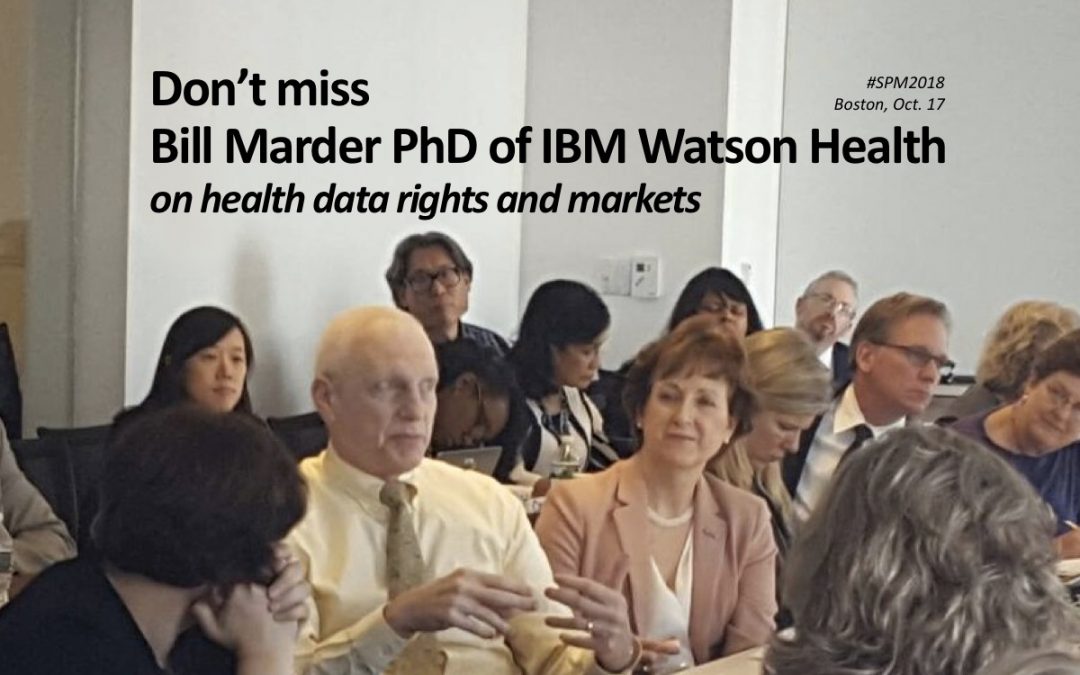Here’s the latest in a series of posts by and about the outstanding topics we’ve lined up for the Society for Participatory Medicine’s second annual conference on Oct. 17 in Boston, attached to the prestigious Connected Health conference. Register here. (Our #SPM2018 series has more about the speakers and activities.)
We know that researchers need access to good quality data. With more efficient access to data sources, medical researchers can spend more time on analysis that enhances our medical knowledgebase and less time compiling data.
We also know that patients have a right to privacy. HIPAA and other federal laws are designed to protect patient privacy and rights to their data, yet we hear of frequent breaches of HIPAA and we learn of new ways that our de-identified healthcare data are being aggregated to create high-value commercial products that may include enough data to re-identify individuals.
In a session devoted to the value and risks of markets for secondary health data at SPM’s 2nd Annual Conference in October, Dr. Bill Marder, chief data strategist at IBM Watson Health, will present a keynote address, “Data Ocean or 1,000 Data Lakes: The Balkanization of Health Data.”
A key question on my mind, which I expect Bill’s talk to illuminate is: How do we find the right balance between the benefits of secondary data to researchers and the risks to patient privacy?
As an SPM board member, I have the privilege of introducing Bill, who will speak about the value of aggregated health data from the researcher’s perspective. He is a widely published health economist who has directed research services for government, private sector, and public policy organizations for over 25 years.
Bill was quoted in Adam Tanner’s book, Our Bodies, Our Data, as being a “cheerful capitalist” about a market for health data. I recently asked him to expand on that characterization and how it relates to the topics he plans to cover at the SPM conference. He replied, “Creating research-ready databases is a costly activity. Somebody has to pay the bill. That bill can be a real challenge, especially if only non-profit entities are allowed to pay.”
Join Us for #SPM2018 in Boston October 17
Learn more about SPM’s second annual conference on Oct. 17 in Boston or register here today ($100 for members/$150 for non-members). In our early years it’s priced as a great bargain for a full day. And see this blog’s #SPM2018 series for more about the speakers and activities.







Recent Comments